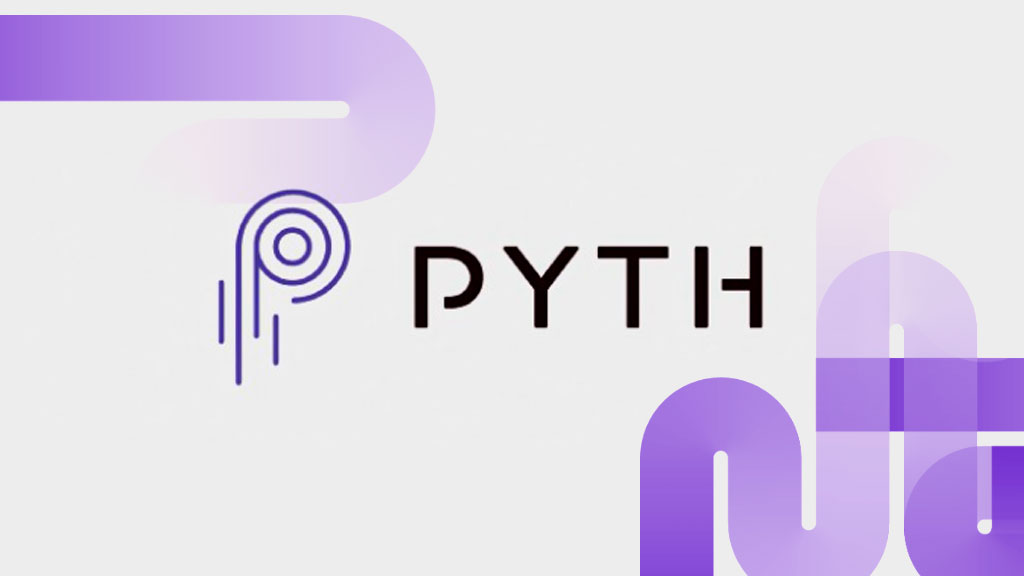Top 10 Web3 Developer Interview Questions And Answers

The continuously evolving digital landscape has brought many promising technologies to the forefront. However, the arrival of web3 has spelled the beginning of a new revolution in the domain of technology. The popularity of web3 has grown exponentially in a short period of time with promising advancements in web3 technologies.
As web3 opens new career opportunities, questions like “How do I prepare for a web3 interview?” have been emerging as top searches on the internet. Web3 offers the possibilities for transforming the internet into a ubiquitous, decentralized, semantic, and immersive experience for users. On top of it, new technologies such as blockchain, cryptocurrencies, smart contracts, DeFi solutions, NFTs, and the metaverse support the development of the web3 landscape.
The global web3 industry might have a market cap of over $100 billion by 2025. In 2021, the number of web3 dApp users in a month amounted to almost 1.5 million. The average annual salary of web3 developers varies between $110,000 and $260,000. Web3 developers have to take charge of building the future of the web3 ecosystem.
Therefore, you have to prepare for the toughest web3 developer interview questions to prove your expertise in standing up to the challenges of web3. Learning the important interview questions and answers can help you improve your confidence before appearing for web3 developer interviews. Let us take a look at some of the top interview questions for web3 developer jobs.

Most Common Web3 Developer Interview Questions
The prospects for career development in web3 can provide a new opportunity for many professionals across different industries. You can also become a web3 developer by strengthening your preparations for web3 developer interviews.
The collection of best web3 interview questions and answers could help you learn the common questions you can expect in an interview. In addition, you can also identify the pointers you should include in answers to questions asked in web3 developer interviews. Here are some of the common interview questions you can expect in interviews for web3 developer jobs.
1. How is decentralization important for web3?
Decentralization is an important concept and one of the foundational principles of web3. The list of most popular web3 developer interview questions would be incomplete without emphasizing decentralization. It points to the distribution of control or power among different participants in a network.
In web3, decentralization translates to the distribution of control or power among different nodes in blockchain networks. The characteristic trait of a decentralized network focuses on the fact that a specific entity cannot have complete control over a network and its data. On the contrary, a distributed network of nodes works on maintenance and governance of the network.
Every node in the distributed network has an equal stake in the decision-making process, thereby ensuring democratization of the network. The answers to such web3 developer interview questions should also outline how decentralization helps web3. Decentralization improves transparency, reliability, and security in web3.
Without a single point of failure or control, any entity would have to overcome formidable challenges for manipulating or breaching the network. Therefore, decentralization is essential for web3 applications, especially the ones that deal with high-value transactions or sensitive data.
Learn the fundamentals, challenges and use cases of Web3.0 blockchain from Introduction To Web 3.0 E-Book
2. What is the utility of public and private blockchains in web3?
You can find the answer to the question in the differences between public and private blockchains. The responses to “How do I prepare for a web3 interview?” would focus on the implications of different types of blockchains for web3. Private blockchain networks are permissioned blockchain networks that are accessible only to a particular group of users or organizations.
As a result, only the authorized participants on the network could gain access and engage with the consensus process. Private blockchain networks are useful for internal applications that demand better control over accessibility of a network.
Public blockchain networks are decentralized networks that do not have any restrictions on access privileges of users. Any individual could join a public blockchain network and take part in the consensus mechanism. Therefore, public blockchains are ideal for applications that demand higher security and transparency.
The replies for such top web3 developer interview questions also draw attention to the assurance of better speed and efficiency with private blockchains. In comparison to public blockchains, private blockchains have to deal with less traffic and involve fewer participants. On the other hand, public blockchains ensure better security and transparency than private blockchains.
Build your identity as a certified blockchain expert with 101 Blockchains’ Blockchain Certifications designed to provide enhanced career prospects.
3. What are the common approaches for achieving consensus in web3 applications?
Consensus mechanisms are an essential aspect of web3 applications. The best web3 interview questions and answers test your knowledge of different types of consensus algorithms. Consensus refers to the process through which a specific blockchain achieves agreement regarding the blockchain state and transaction validity. It ensures that all the network participants agree on the same state of blockchain for ensuring reliability and security of the blockchain.
You can find multiple consensus algorithms in the field of web3, such as Proof of Work, Proof of Stake, and Delegated Proof of Stake. In addition, other new types of consensus algorithms include Byzantine Fault Tolerance or BFT and Practical Byzantine Fault Tolerance or PBFT consensus mechanisms. Every consensus algorithm features a unique set of weaknesses and strengths and could serve distinct use cases.
Curious to develop an in-depth understanding of web3 application architecture? Enroll now in the Web3 Application Development Course
4. How can you use smart contracts in web3?
Smart contracts are self-executing contracts that outline the terms and conditions of an agreement between two parties in code. The smart contract code is deployed and replicated across multiple nodes of a blockchain network. The most popular web3 developer interview questions about smart contracts also invite attention to the outcomes of smart contracts.
Smart contracts could help in automation of different processes alongside facilitating, verifying, and enforcing the execution of contracts. On top of it, smart contracts can play a crucial role in web3 for streamlining multiple processes, such as exchange of assets in a completely transparent manner. The primary benefits of smart contracts can be attributed to the lack of intermediaries, which prevents conflicts.
Smart contracts are useful for the automation of different processes in web3 applications to ensure secure, reliable, and transparent interactions between different parties. You can also respond to such web3 developer interview questions by pointing out the use cases of smart contracts in real estate, supply chain management, and financial transactions. For instance, smart contracts could help in automating transactions in real estate with the terms of an agreement outlined in the code.
Curious to understand the complete smart contract development lifecycle? Enroll now in the Smart Contracts Development Course
5. How are on-chain transactions different from off-chain transactions?
On-chain transactions are the transactions recorded directly on the blockchain ledger. The blockchain network validates such transactions and stores them permanently in the ledger. On the other hand, off-chain transactions are not recorded directly on the blockchain. Off-chain transactions are settled outside the blockchain network, primarily through third-party services or platforms.
The answers to these top web3 developer interview questions should also point to the lack of security and transparency in off-chain transactions. However, off-chain transactions are significantly faster and more cost-effective than on-chain transactions.
On-chain transactions and off-chain transactions can serve as effective tools in web3 for different applications. For instance, on-chain transactions are the ideal pick for sensitive or high-value transactions that demand more security and transparency. On the contrary, off-chain transactions are ideal for transactions that deal with less sensitive information and require faster processing at lower costs.
6. What are the proven solutions to scalability issues in web3?
Scalability challenges are a formidable concern for web3 systems as the demand for web3 applications continues increasing. Candidates seeking answers for “How do I prepare for a web3 interview?” must prepare for questions on scalability issues. The prominent scalability challenges include increasing requirements of resources, restrictions on transaction throughput, and longer confirmation times. Some of the proven solutions for these scalability challenges include layer 2 solutions, sharding, state channels, off-chain data storage, and improvements in consensus algorithms.
Sharding involves partitioning the blockchain into shards to support parallel transaction processing. Layer 2 or off-chain solutions help in transaction processing while utilizing the security of the underlying blockchain. Off-chain data storage could also help in removing large and non-essential data away from the chain. Optimization of consensus mechanisms could also help in achieving lower confirmation times and higher transaction throughput.

7. How can you address the problem of data privacy in public blockchains?
Public blockchains offer the advantage of transparency, which presents a formidable challenge for privacy in web3 applications. You can find such entries among best web3 interview questions and answers that would test your ability to resolve crucial setbacks for web3 solutions. The notable approaches recommended for addressing the issues of data privacy in web3 applications include data encryption, permissioned blockchains, off-chain storage, and zero-knowledge proofs.
Encryption of sensitive data before storing them on blockchain and off-chain storage of sensitive data could offer promising solutions for privacy concerns in web3 applications. Interestingly, you can also opt for zero-knowledge proofs to prove the validity of transactions without revealing sensitive or private data.
8. What is the purpose of ERC-20 and ERC-721 in web3?
ERC-20 and ERC-721 are token standards used for the Ethereum blockchain. The token standards are important aspects of the most popular web3 developer interview questions as they are crucial for designing web3 solutions. For example, ERC-20 is a token standard for fungible tokens. It can support the development of cryptocurrencies or tokens that you can utilize for different purposes, such as utility tokens or digital assets.
On the other hand, ERC-721 token standard is an ideal pick for representing non-fungible tokens. The ERC-721 token standards imply that every token is unique and provides representation for ownership of a specific asset. NFTs are an important component of the web3 ecosystem and help in representing unique assets, art, or digital collectibles in web3 applications.
Excited to learn the basic and advanced concepts of ethereum technology? Enroll now in the Ethereum Technology Course
9. What is the importance of DAOs in web3?
DAOs, or Decentralized Autonomous Organizations, are one of the most important aspects of web3. You can explore the best web3 interview questions and answers to uncover the significance of DAOs in ensuring decentralized ownership of organizations. DAOs primarily focus on distributing power and resources in an equitable manner for designing transparent organizations. DAOs are important requirements for the rise of web3 organizations, which could follow the important tenets of community-based governance.
Decentralized Autonomous Organizations can serve as the web3 alternative to traditional organizations. It offers the right framework for ensuring the participation of every organization member in the governance process. Furthermore, DAOs can be modified to adapt to the specific requirements of the web3 community. In addition, DAOs also offer the assurance of security through immutable smart contracts. Some of the popular examples of DAOs in web3 include MakerDAO and Uniswap.
Excited to develop fluent knowledge of the DAO ecosystem? Enroll now in DAO Fundamentals Course
10. What are the best practices for ensuring web3 security?
The challenges of web3 security can create restrictions for large-scale web3 adoption. You can find such entries in the top web3 developer interview questions to prove your knowledge of web3 security. Some of the common best practices for ensuring security of web3 applications include the use of strong passwords and two-factor authentication. In addition, you should also choose secure networks and update the web3 applications with recent security patches.
Web3 developers could also enhance security of web3 applications by using secure communication channels and storage. For example, hardware wallets could help in secure storage of sensitive data and crypto assets. On the other hand, developers must also maintain and follow secure development practices by complying with secure coding standards. On top of it, comprehensive security testing of smart contracts and web3 dApps could help in safeguarding web3 applications.
Build your fluency in Web3 and develop decentralized solutions with the world’s first Web3 Expert Career Path with quality resources tailored by industry experts Now!
Conclusion
The review of the most popular web3 developer interview questions shows that you can achieve your career goal with clarity regarding web3 fundamentals. You should learn about the important web3 principles and the role of smart contracts, consensus mechanisms, and token standards in web3.
In addition, you should also learn about the importance of web3 security and solutions for scalability challenges in web3. Aspiring web3 developers must also hone their web3 expertise through professional training courses. Learn more about web3 fundamentals and start your career path in web3 with trusted learning resources right now.

*Disclaimer: The article should not be taken as, and is not intended to provide any investment advice. Claims made in this article do not constitute investment advice and should not be taken as such. 101 Blockchains shall not be responsible for any loss sustained by any person who relies on this article. Do your own research!



